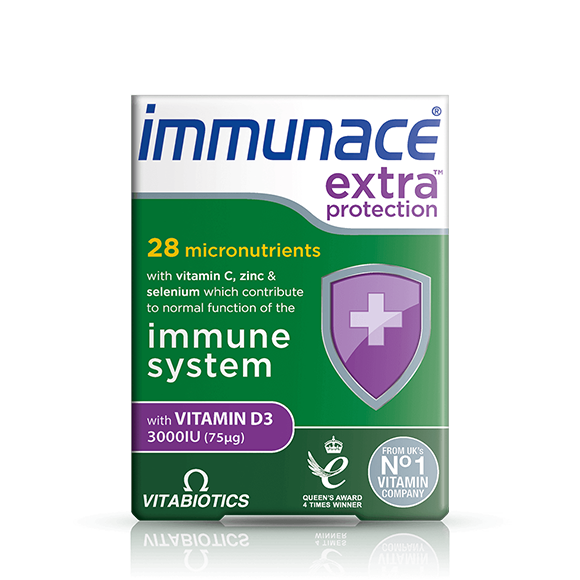It’s Important For Several Functions In The Body, But What Is Zinc And How Do We Get Enough?
If you’re wondering exactly what is zinc, then you’ve come to the right place. This essential trace mineral is important for many biological functions within the body, and actually plays a role in over 200 enzymes in the body.
From helping to support the functioning of our immune system, to contributing to normal fertility and reproduction, zinc really does play a key role in staying healthy.
How Much Zinc Do We Need?
In the UK, The Department of Health and Social Care recommend men aged 19 to 64 years old get 9.5 milligrams (mg) of zinc a day whilst women get 7mg a day.
However, some experts believe that there are times when higher levels of zinc are beneficial.
The UK’s Department of Health also advises that the intake of zinc should not exceed 25mg per day, unless otherwise advised by a doctor.
Why Do We Need Zinc?
Zinc contributes to the protection of cells from oxidative stress. This oxidative stress occurs when cells are exposed to an excess of free radicals. Free radicals are produced when we are exposed in excess to factors such as cigarette smoke, pollution and sunlight.
Zinc also contributes to normal fertility and reproduction in men and women and also plays a role in the process of cell division. It is an important mineral for the male reproductive system as it protects cells from oxidative stress. Semen contains 100 times more zinc than is found in blood and each male ejaculate contains around 0.5mg of zinc. Zinc also contributes to the maintenance of normal testosterone levels in the blood, too.
Another benefit of zinc is that it contributes to the normal functioning of the immune system.
Added to this, zinc helps to process the carbohydrate, fat and protein in food.
Finally, we need enough zinc as it contributes to the maintenance of normal vision and cognitive function, plus it contributes to the maintenance of normal skin, hair, nails and bones.
The Best Zinc Foods
Now we know what zinc is and what it does for our body, we need to ensure we’re getting enough. There are several foods that provide zinc, such as the ones below. It’s worth noting however that the foods highest in zinc are animal-based foods, so vegetarians and vegans may benefit from taking a supplement.
- Oysters, 6 - 52mg
- Beef steak, 100g - 11mg
- Hemp seeds, 28g - 3mg
- Lentils per cup - 3mg
- Squash and pumpkin seeds, 28g - 2mg
- Pine nuts, 28g - 2mg
- Pork chop, 100g - 2mg
- Chicken leg, 100g -2mg
- Firm tofu, 100g - 2mg
- Lean pork chops, 100g - 2mg
- Spinach, per cup cooked - 1.4mg
- Oatmeal, 100g - 1mg
- Low fat yoghurt, 100g - 1mg
- Brazil nuts, 28g - 1mg
- Avocado, one whole - 1.3mg
- Shiitake mushrooms, 100g - 1mg
- Raspberries, per cup - 0.5mg
- Blackberries, 100g - 0.5mg
- Broccoli, 100g - 0.5mg
- Apricots, 100g - 0.2mg







